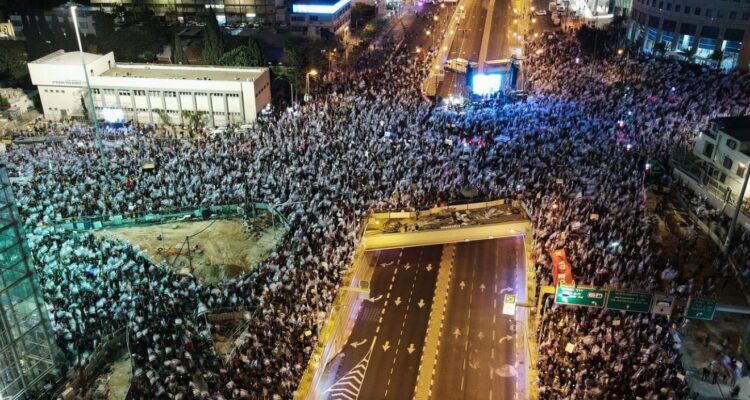Late last month Israeli Prime Minister Binjamin Netanyahu announced a pause on the judicial reform proposals that have spurred mass protests around the country over the last three months. He did so, he said, to allow for negotiations with all parties to attempt to reach a broad consensus.
This has been a difficult period for Israel, as hundreds of thousands of ordinary citizens stood up against what they regarded as an attack on their democracy, leading even to a general strike. There have been many inflammatory statements from all sides, accusing each other of stoking civil unrest or attempting to subvert democracy.
In many ways, it left the country wounded and divided.
Many enemies of the Jewish state were buoyed, insisting that recent events prove, just as they have always said, that Israel is an artificial “colonialist entity” alien to the region, destined to collapse. None of this is true.
If anything, we have seen not the weakening of Israeli democracy, but an exhibition of its true strength. Israeli democracy worked – ordinary citizens expressed their democratic right to voice their opinions on issues important to them – and did so passionately and almost wholly peacefully.
There were instances of intimidation and incitement, but nothing compared to what happens in other Western liberal democracies.
Read the article by Justin Amler in The Australian.

